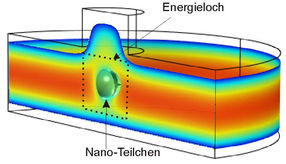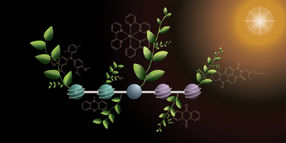Potential pivot for a more effective cancer immunotherapy
Advertisement
Scientists from the Biomedical Research Foundation of the Academy of Athens (Greece), the Institute of Clinical Chemistry and Laboratory Medicine of the Carl Gustav Carus University Hospital Dresden and the National Center for Tumor Diseases Dresden (NCT/UCC), in collaboration with an international team of researchers, have demonstrated in laboratory experiments a previously unknown mechanism that could influence the effectiveness of cancer immunotherapies.
The focus is on the messenger substance interleukin-33 (IL-33). If the production of IL-33 in regulatory T cells in the tumor and in the immediate vicinity of the tumor is inhibited, tumor growth is reduced and immunotherapies show increased effectiveness in experimental models. The understanding of this mechanism could contribute to the development of new immunotherapeutic approaches.
Despite impressive clinical success, immunotherapies to combat cancer are ineffective with many patients. Regulatory T-cells, so-called Tregs, which inhibit an immune response directed against the tumor, play an important role here. Scientists of the Biomedical Research Foundation of the Academy of Athens, the Institute of Clinical Chemistry and Laboratory Medicine of the Carl Gustav Carus University Hospital Dresden and the National Center for Tumor Diseases (NCT/UCC) have now been able to show that a special messenger substance – interleukin-33 – found in the Tregs is an adjustable pivot for the function of the cells and for improved effectiveness of immunotherapies in the future.
Regulatory T cells accumulate to a high degree in and around the tumor. They serve an anti-inflammatory function by calming the immune system. However, this supposedly positive response to prevent excessive immune reactions is counterproductive in the tumor and its immediate environment: here, the immune system should be highly active to fight the tumor. Excessive Tregs promote tumor growth and, in many cases, impede the effectiveness of tumor immunotherapy.
In contrast to Tregs in other body regions, regulatory T cells in the tumor and its immediate environment have a particularly high content of the messenger substance interleukin-33 (IL-33). As the researchers have now been able to show on the basis of different experimental models, blocking the production of IL-33 reduces the inhibitory properties of the Tregs and thus leads to a decrease in tumor growth and a better effectiveness of immunotherapies. Important for the altered function of the Tregs associated with the absence of IL-33 is likely the increased production of the interferon-gamma protein, which has immunostimulatory properties.
The messenger substance IL-33 could therefore possibly offer a starting point for the targeted attack of the Tregs in the tumor and for changing their functionality. On the other hand, a less targeted attack on all Tregs present in the body could lead to a potentially life-threatening auto-immune reaction. IL-33 is therefore a potential target on which future therapies could focus in order to promote the immune system’s fight against cancer.



























































